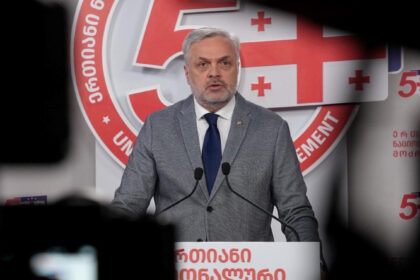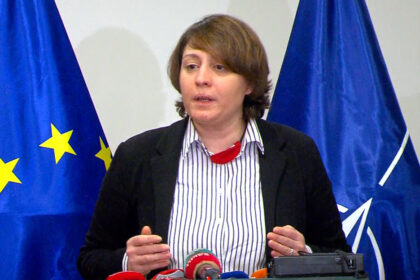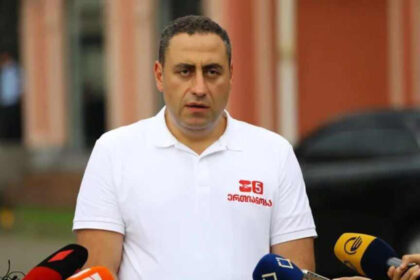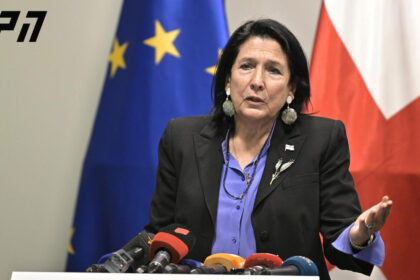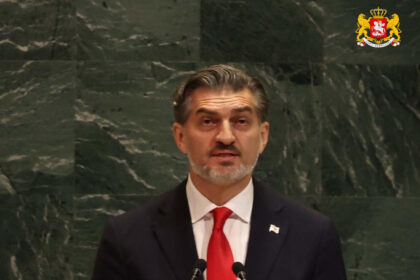The International Society for Fair Elections and Democracy (ISFED), Georgia’s leading election watchdog, says the legislative changes passed by the Georgian Dream further rig the electoral system to its advantage ahead of the October 4 local elections.
According to ISFED, the changes in the election law were adopted in three stages and “with violations of international standards.” The changes included abolishing the 40% threshold for majoritarian city council (Sakrebulo) seats, increasing the share of majoritarian seats over proportional ones, and modifying vote-counting functions in the commissions to favor the better-performing party. “Each of these changes has been tailored to the interests of Georgian Dream,” the watchdog said.
Gaining more advantage
ISFED’s August 25 review outlines five major modifications to electoral rules adopted since May 2024.
According to the first change, the 40% threshold for majoritarian city council candidates was abolished. Previously, a candidate had to win more than 40% of the vote to be elected, with a runoff required if they fell short. After the May 2024 changes, the candidate with the most votes wins outright, regardless of how low their share is.
“This change, while opposition parties are fragmented, gives Georgian Dream the possibility to secure majorities in city councils even with low voter support,” ISFED said.
The second stage of changes, adopted on December 13, 2025, increased the number of majoritarian seats in self-governing city councils. In Tbilisi’s 50-member body, the split was changed from 10 majoritarian and 40 proportional seats to an even 25-25.
In Kutaisi, Batumi, Rustavi, and Poti, councils were reduced from 35 to 25 members, but the number of majoritarian mandates rose from 7 to 10, while proportional seats dropped from 28 to 15.
The amendments also reshaped municipalities by setting a flat 15 proportional seats nationwide and electing one majoritarian from each settlement, including villages and towns within those municipalities. ISFED said the change will sharply increase the majoritarian share in nearly all municipalities – in some cases to as much as 70% – warning it could allow Georgian Dream to win “absolute majorities” even with limited voter support.
“Such a dominant share of mandates in the representative bodies of self-governing units will significantly increase the disproportionality between votes and seats, favoring the first-place party, and working against other political parties,” ISFED said.
Under the same rule, setting 15 proportional seats in all municipalities marks a sharp decline from the previous average of 22, with the number in some municipalities cut in half – from 30 to 15.
Another amendment raised thresholds for parties to enter councils through the proportional vote. In Tbilisi, the threshold increased from 2.5% to 4%, and in other municipalities, from 3% to 4%. ISFED argued that the higher threshold benefits larger parties.
The Venice Commission criticized the December changes in March, warning they “may result in the further entrenchment of the governing party’s position” and called on Georgia to repeal them.
The third stage of changes, adopted in March 2025, altered how leftover seats are distributed in the proportional vote. Previously, the mandates went to parties with the largest remainders of votes. Under the new rules, they go directly to the party that garners the most votes.
ISFED said the change gives a significant boost to the leading party. It is estimated that with the old formula, a party winning 45% of the vote would have secured 47% of proportional seats, while under the new system, it could take 53%.
Georgia’s half-boycotted elections…
ISFED said on August 21 that it will not deploy a “standard mission” to observe the October 4 vote, citing that conditions for a free, fair, and competitive vote have “largely not been met.” The group, however, said that it would continue monitoring and assessing political and election-related developments.
The October 4 municipal election is boycotted by part of the opposition, which says participating would amount to cooperating with the disputed Georgian Dream government and normalizing its rule amid ongoing anti-government protests and state repression.
Only 14 parties are contesting what many in the opposition consider to be an unfair race. Among the opposition participants are the Lelo/Strong Georgia coalition and former Prime Minister Giorgi Gakharia’s For Georgia, both of which cleared the 5% threshold in the last parliamentary election but have not taken their seats as part of an opposition boycott. They say they have a chance in major cities, where support for the ruling party is relatively weak, and have opted to fight on despite the odds.
On August 21, the same day ISFED released its review, Lelo and For Georgia unveiled joint majoritarian candidates for the Tbilisi City Council (Sakrebulo). Earlier, on August 18, the two parties nominated Lelo’s Secretary General Irakli Kupradze as their joint candidate for Tbilisi mayor. Kupradze faces the ruling Georgian Dream’s incumbent mayor Kakha Kaladze, who is seeking a third term, and far-right leader Zurab Makharadze of the Conservative Movement (Alt-Info) party.
Georgian Dream has vowed to win all municipalities while, for the first time, not inviting the international ODIHR mission to observe the vote.
…will also be less transparent
On August 26, the Georgian Charter of Journalistic Ethics, an independent group of journalists, said it will not be able to conduct pre-election media monitoring for the first time since 2012. The Charter’s monitoring effort traditionally tracked political bias in media outlets.
The Charter blamed what it called Georgian Dream’s “repressive laws” and policies for “damaging media” in the country, and said the ruling party was responsible for its losing Western donor funding needed to carry out such monitoring.
“At this stage, the Charter continues to carry out its basic functions voluntarily, including reviewing citizens’ complaints about violations of professional standards. However, it is no longer able to implement projects or provide this and other essential services to the public and the journalistic community,” the Charter said.
ISFED: Election Law Changes Tilt October 4 Vote Further Toward Georgian Dream





